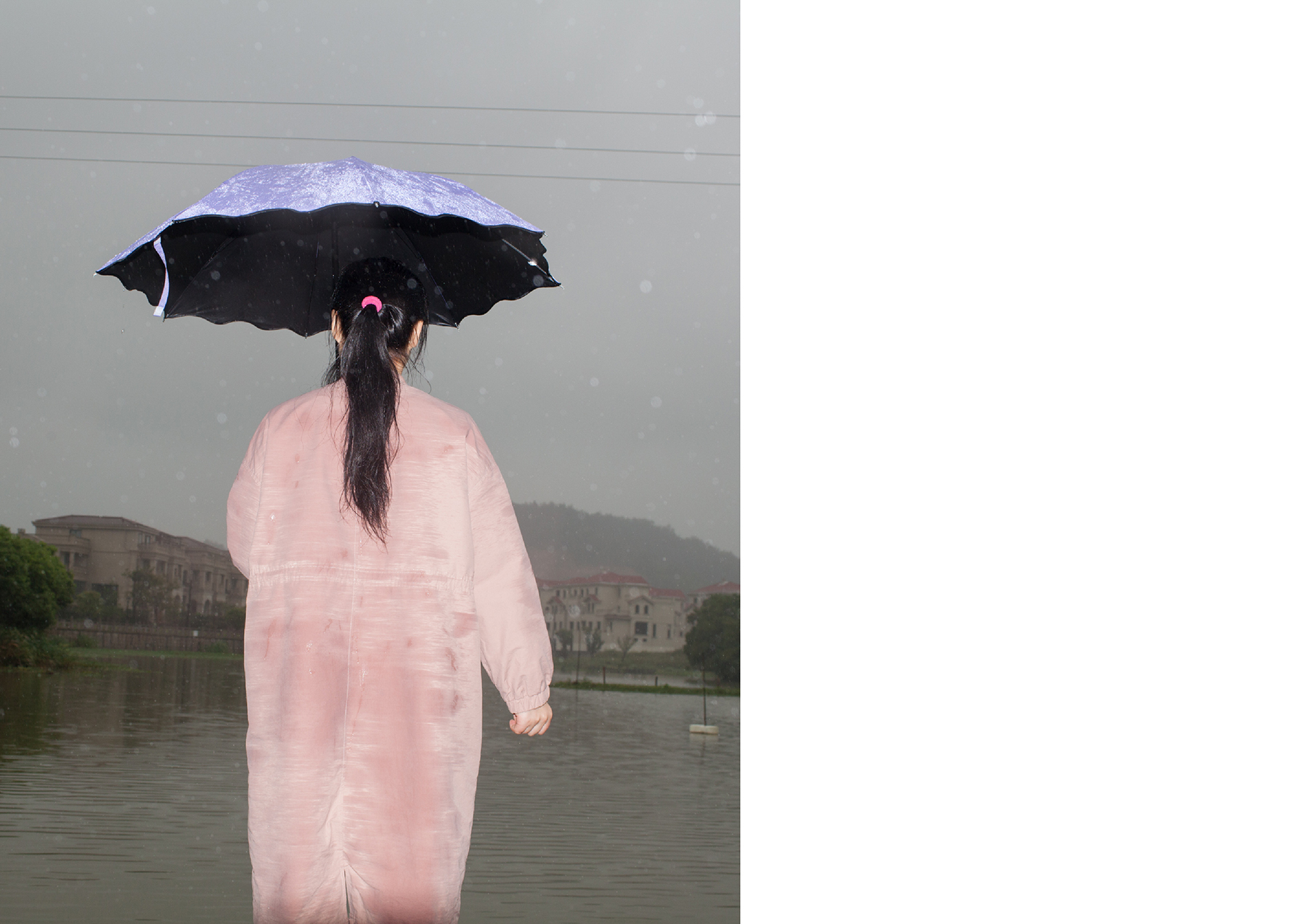
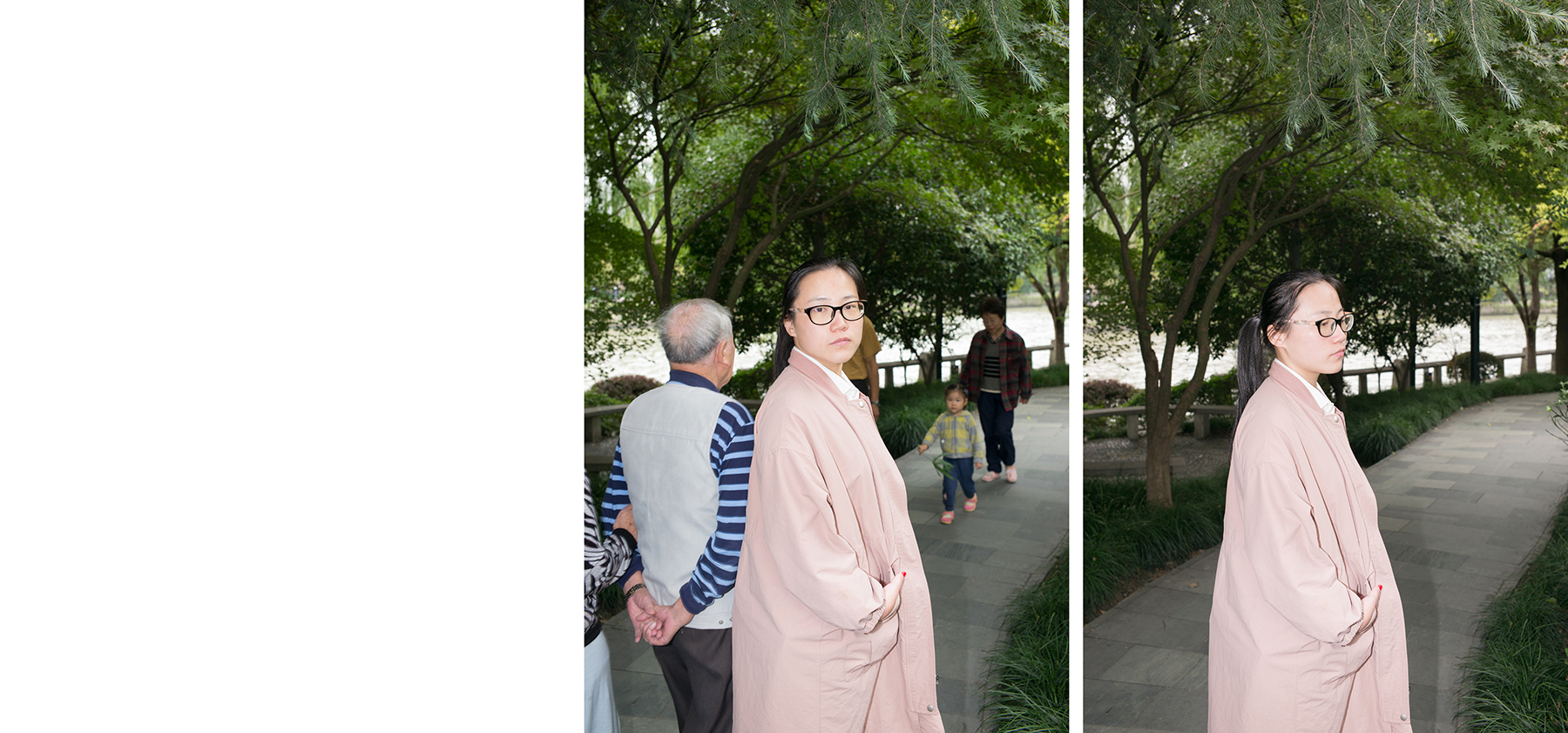
The family ancestry book lists only the male members of the family. However, in the longest column on the left-hand page is Cōng Yàn’s name. She is the only girl mentioned in the book. Cōng Yàn was a second daughter so her parents decided to raise her as a boy.
She was her grandfather’s favorite, spending days with him in the forest, while her older sister stayed with their grandmother at home. Because of the "one child" policy, her parents had to pay for having a second baby. Despite this, they decided to give her the best education.
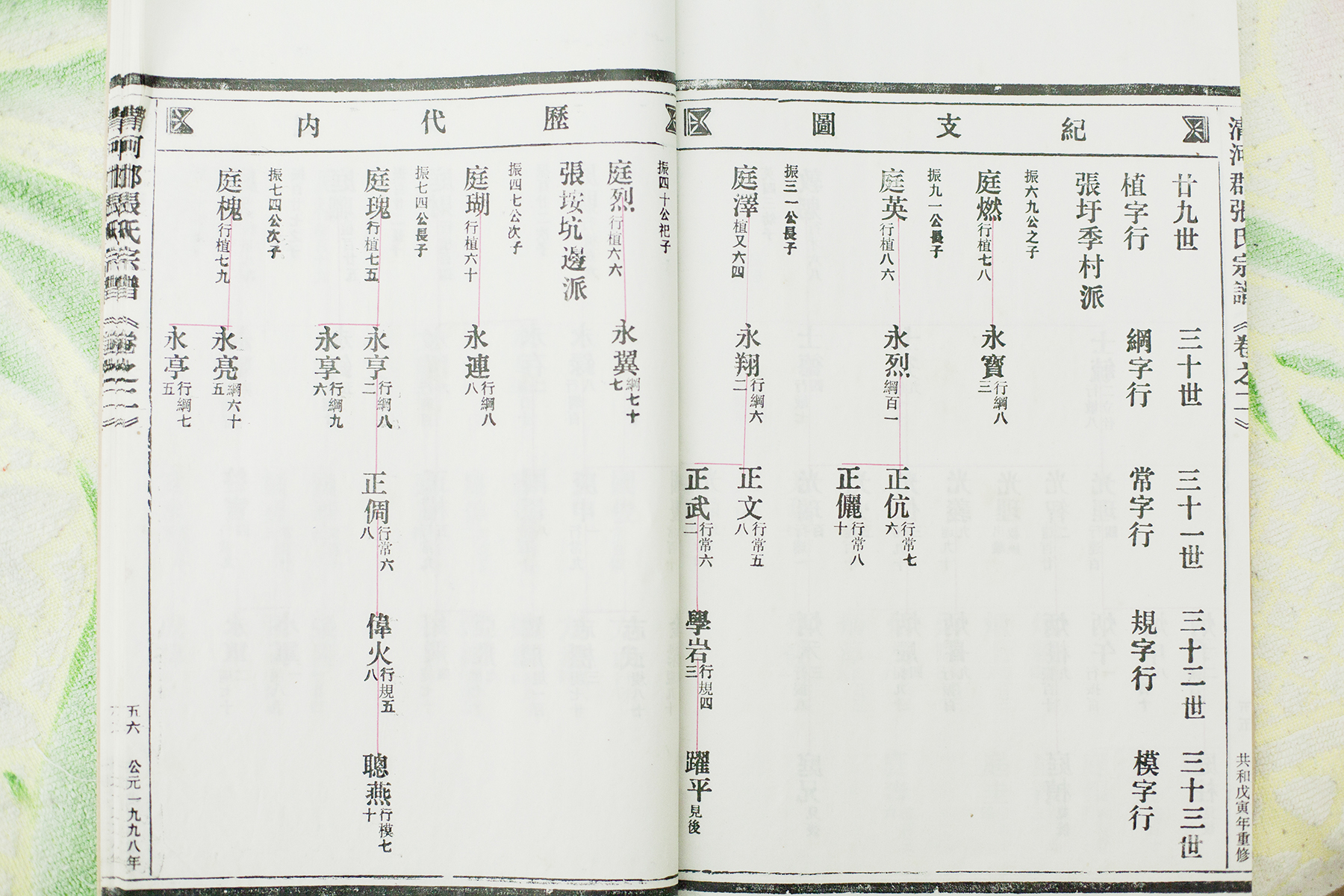
I was born on the first day of the New Year. Time stops on New Year's Day, no one works, everyone goes back home, the cities are empty, restaurants and shops are closed. My mom started to feel the pain during lunch. There was no doctor or midwife in the village. No one had a car. My father and his friend hauled my mom through the mountains in a wheelbarrow; it took them several hours to get to the nearest hospital. The doctor was irritated to have to work on New Year’s Day. He helped my mother give birth, but didn’t write down the exact time of birth, which is very important to predict your future. It was fairly warm on the day I was born, the sun was shining.
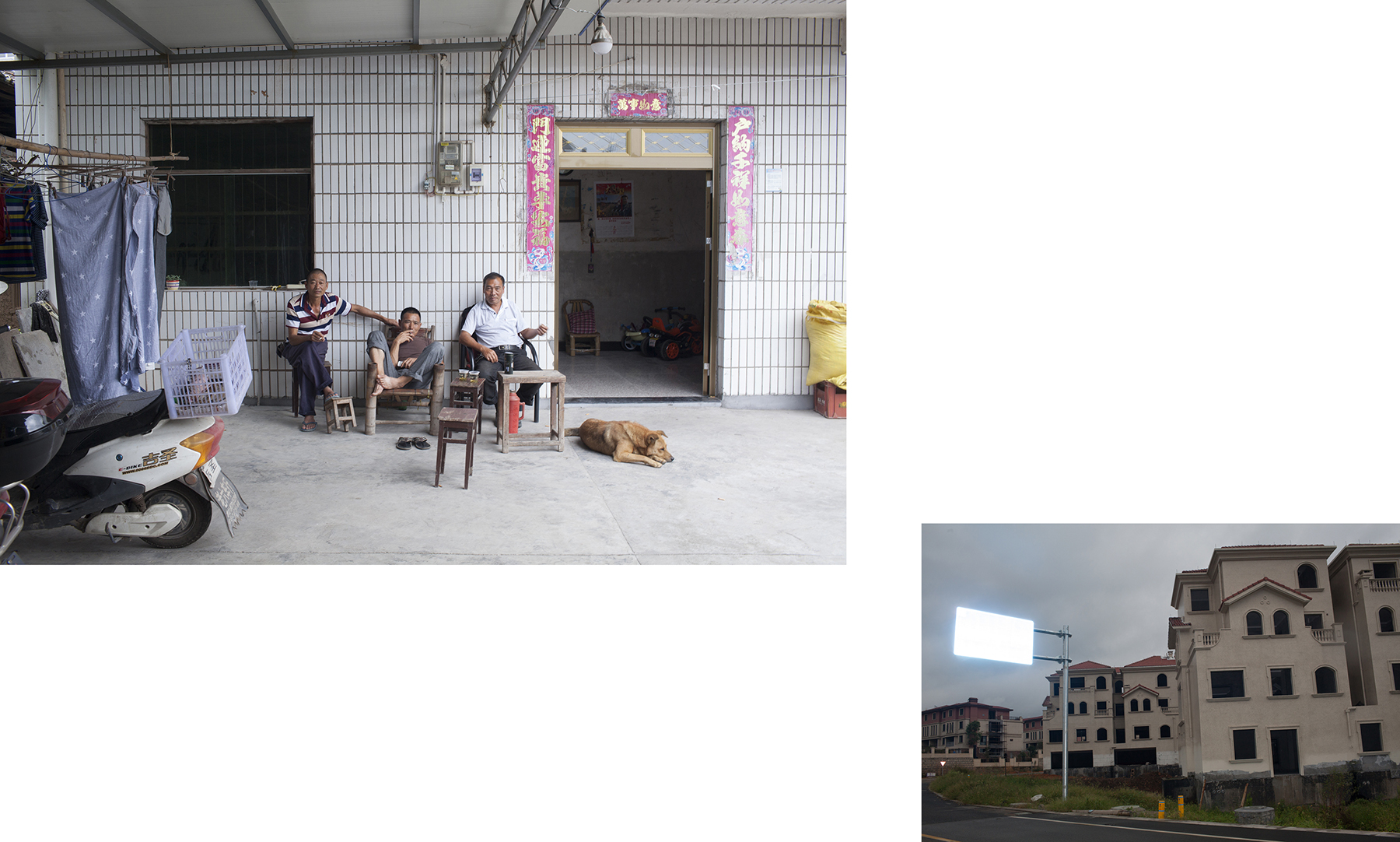
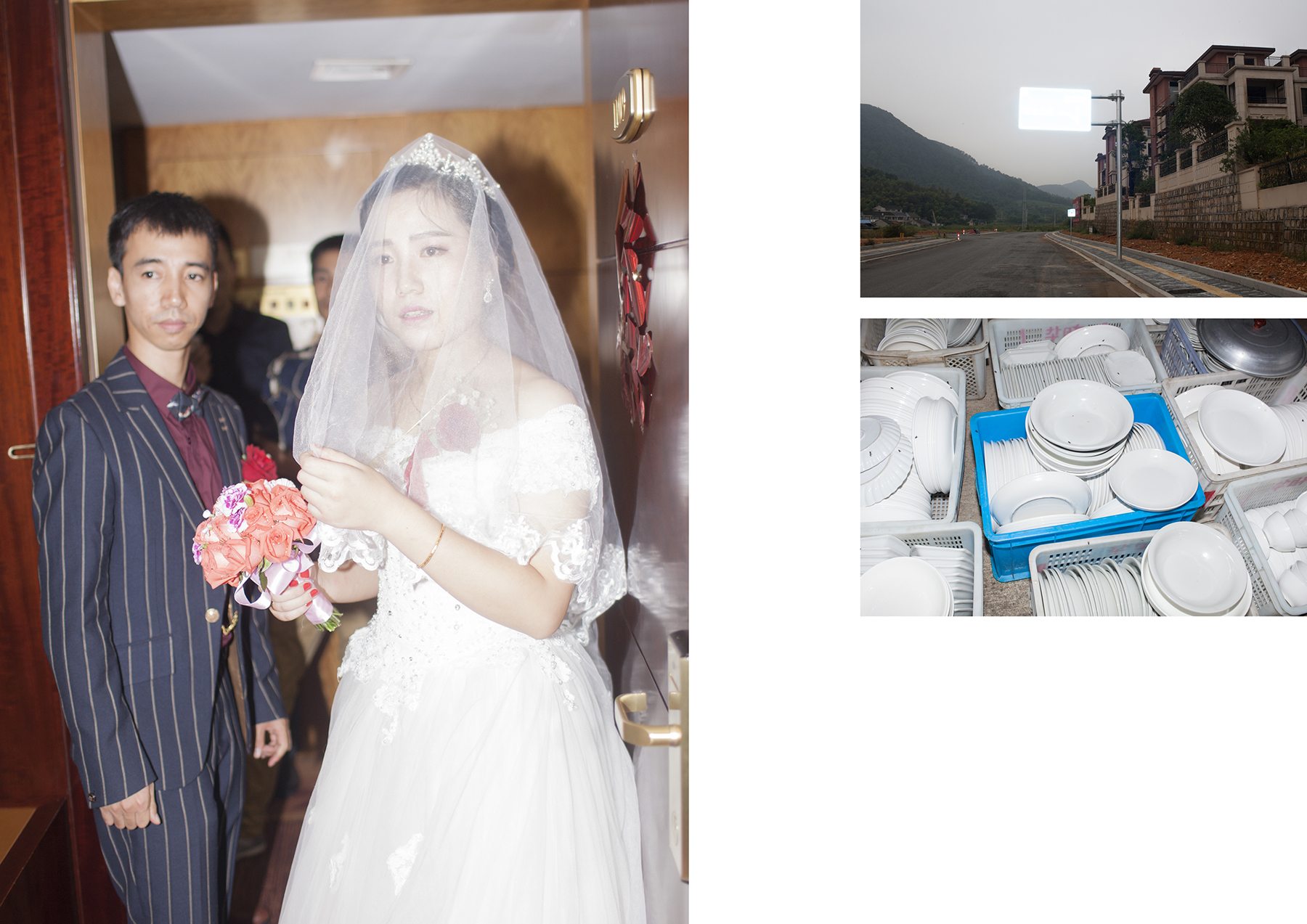
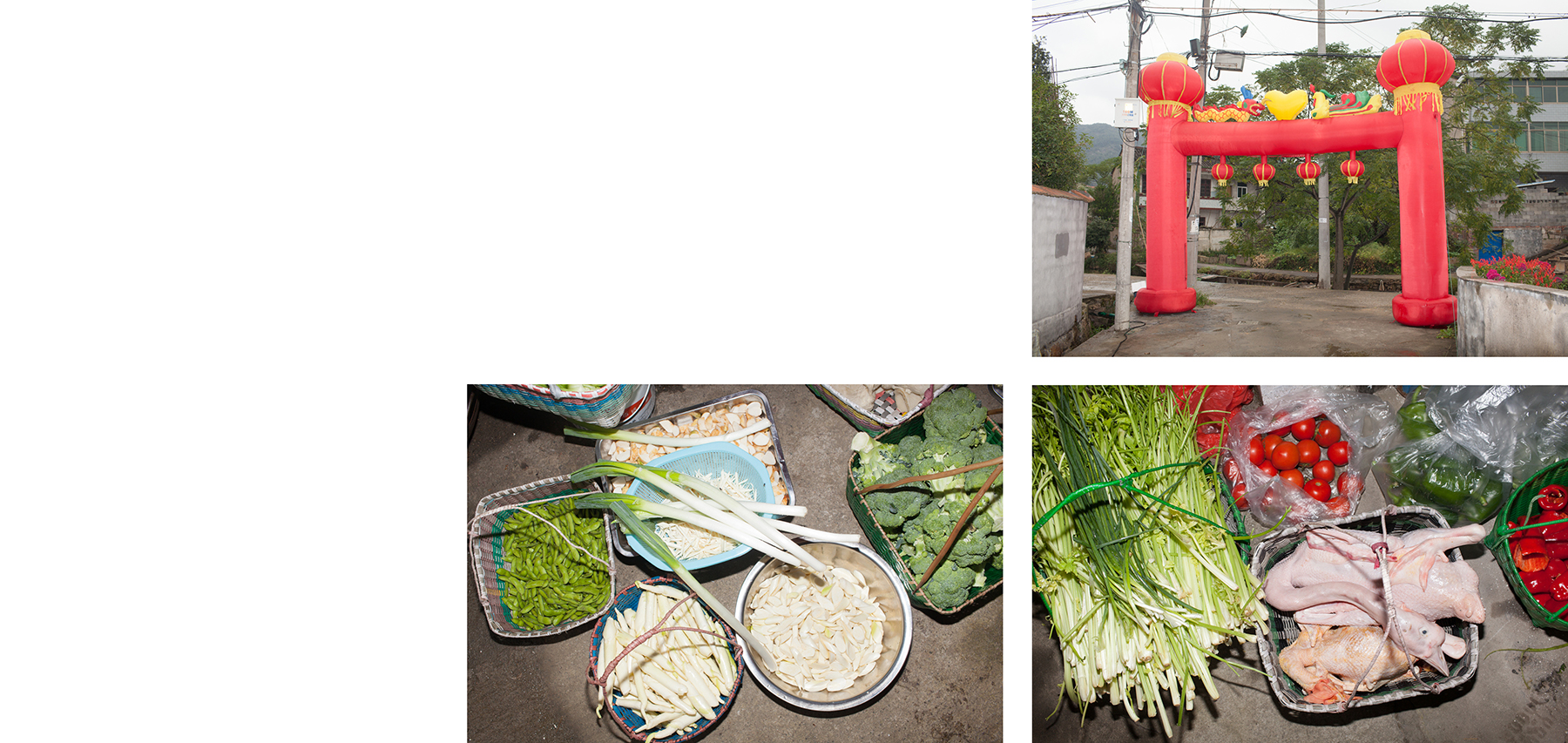
Although the couple had been together for 8 years, Chen Feng’s parents were still not convinced he should marry Cōng Yàn since she didn’t know the exact time of her birth. They couldn’t read in the stars if the two matched.
Finally, Cōng Yàn’s mother had to dig down into her memories of that day, to avoid the wedding being cancelled. She estimated she gave birth around 7 pm.
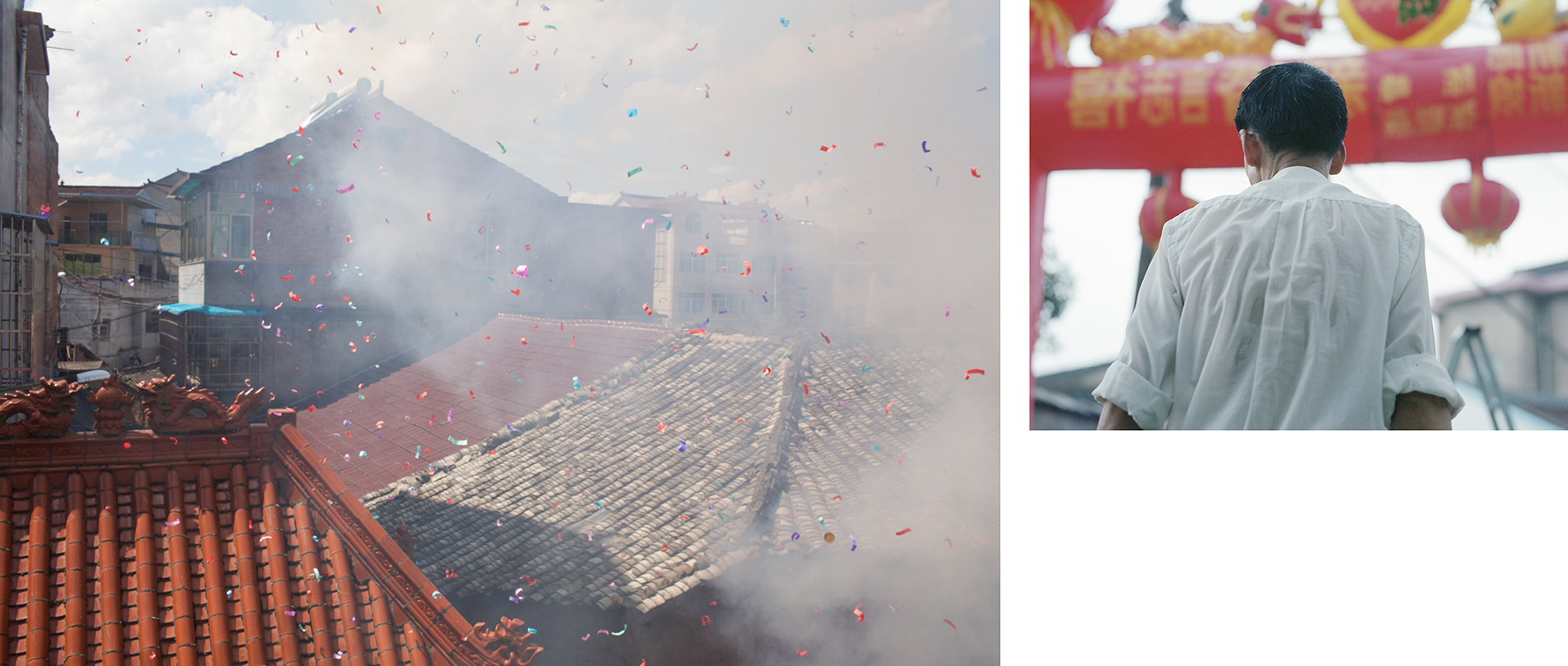
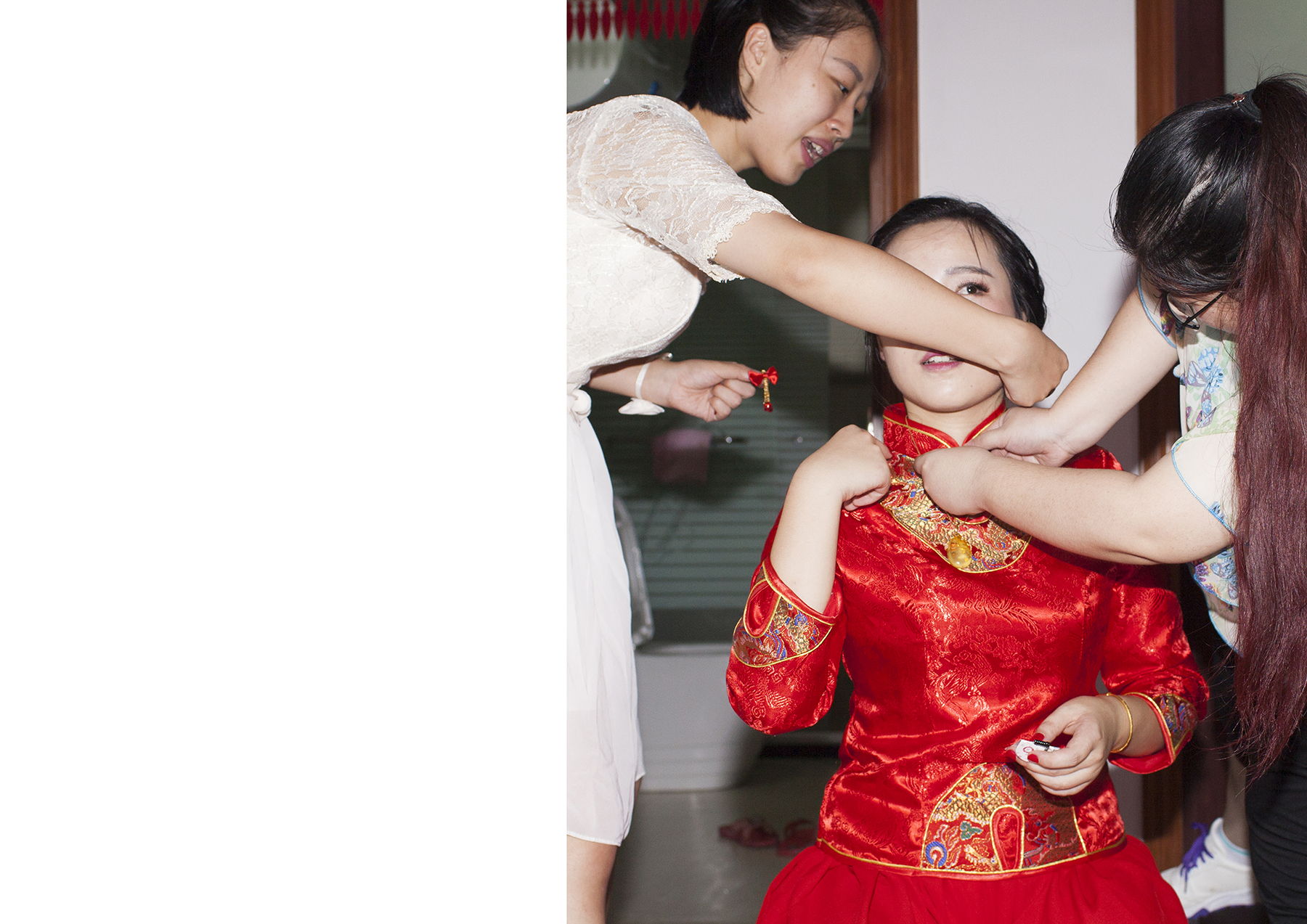
Cōng Yàn and Chen Feng got their marriage certificate from the registration office, a little red book with their portrait inside.
The preparations began: the young couple signed up for a driving license and began saving money, with some help from their families, for their first car. They renovated an apartment in Chen Feng’s family house. They did an impressive photo shoot, posing in many suits and dresses.
A few days before the wedding, the villagers started helping out: the men put up red tents between buildings, hung up red garlands and removed all nails from the walls, for good luck. The women shelled lotus seeds, peeled bamboo sprouts and untied entangled crabs.
The orchestra and filmmakers walked ahead of the car transporting the young couple along a newly built road with uninhabited buildings on either side. Then, Cōng Yàn and Chen Feng, covered in confetti, in a roar of fireworks and surrounded by guests, passed through two colorful inflatable gates, to pay their respects to the family.
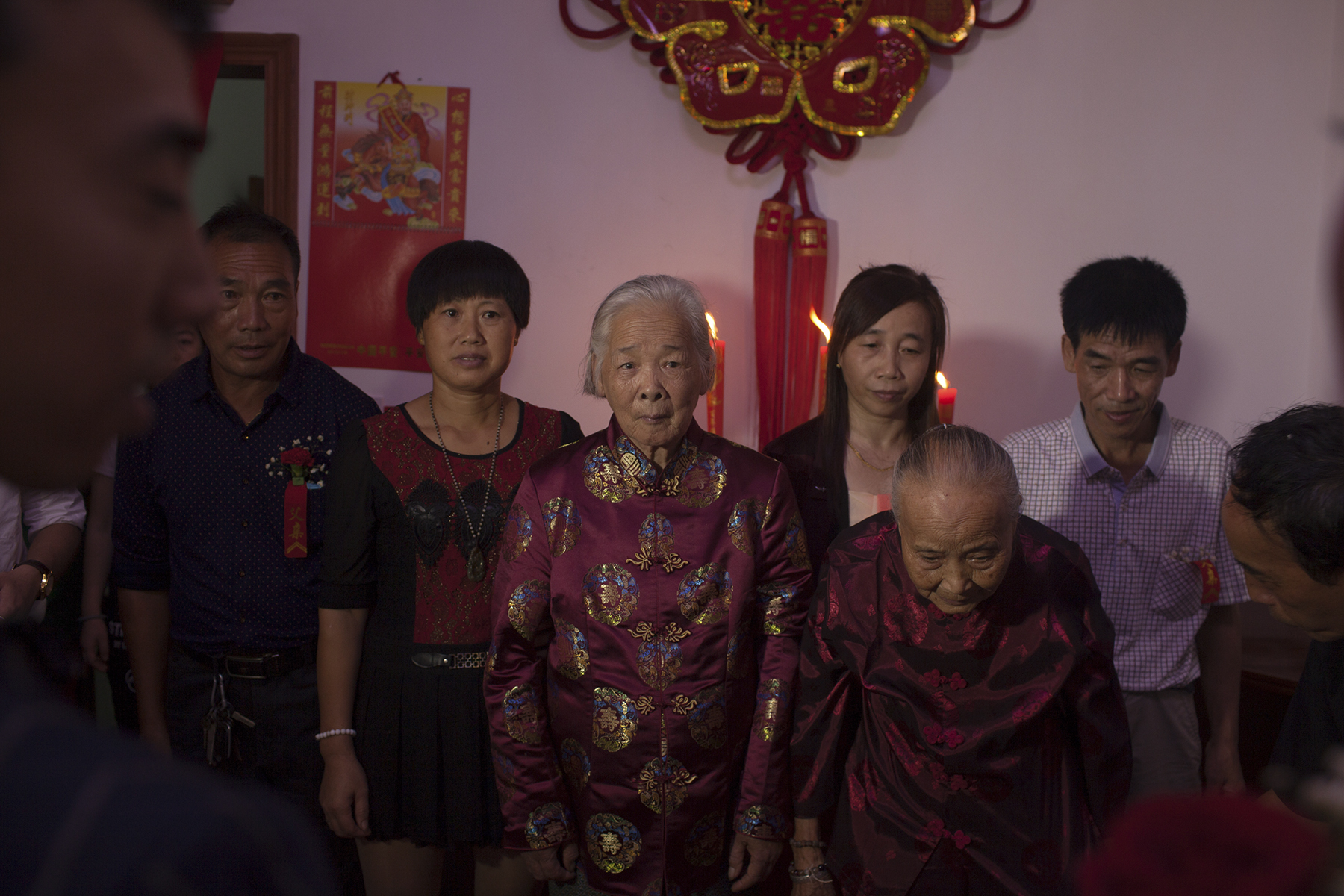
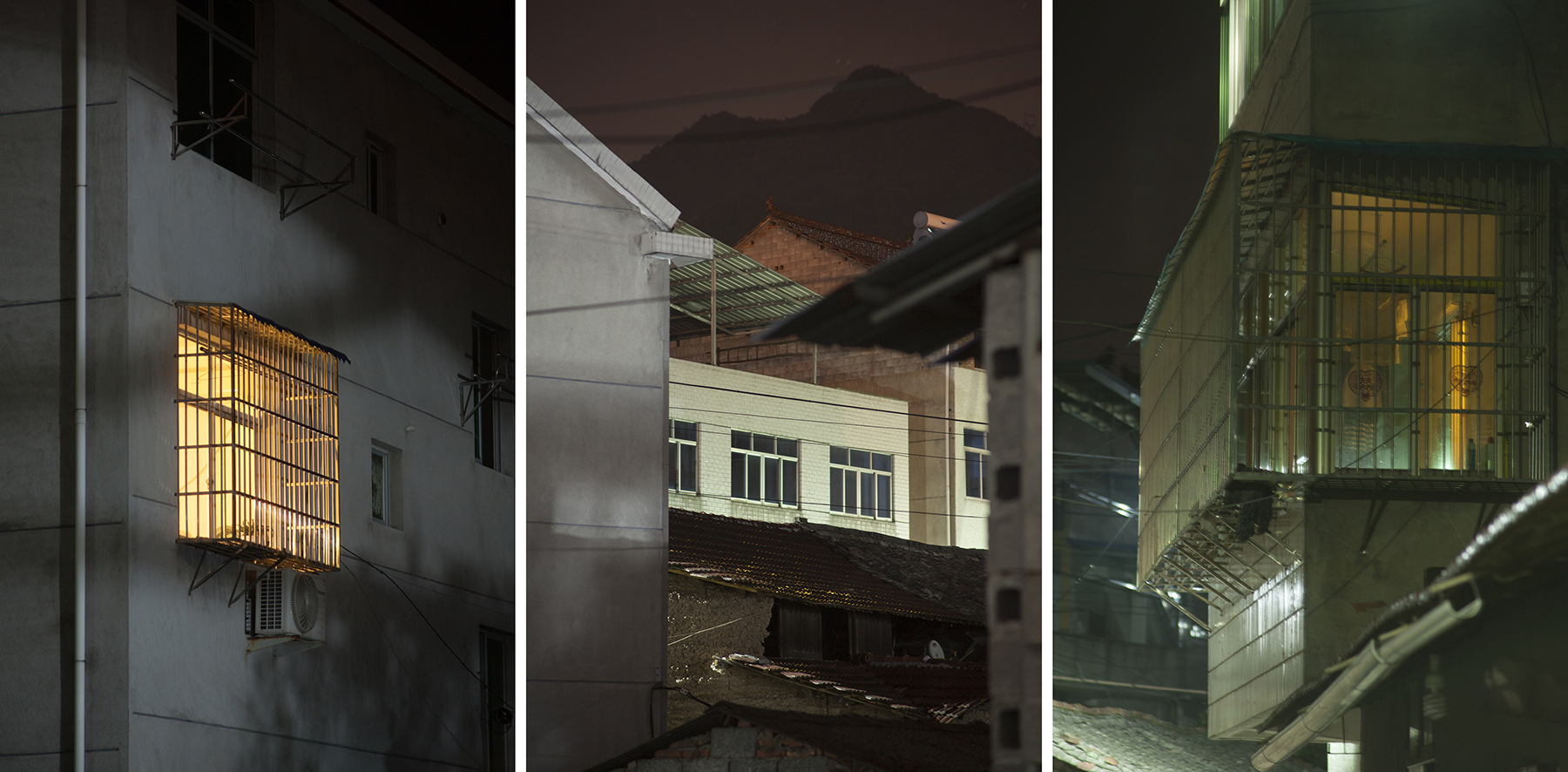
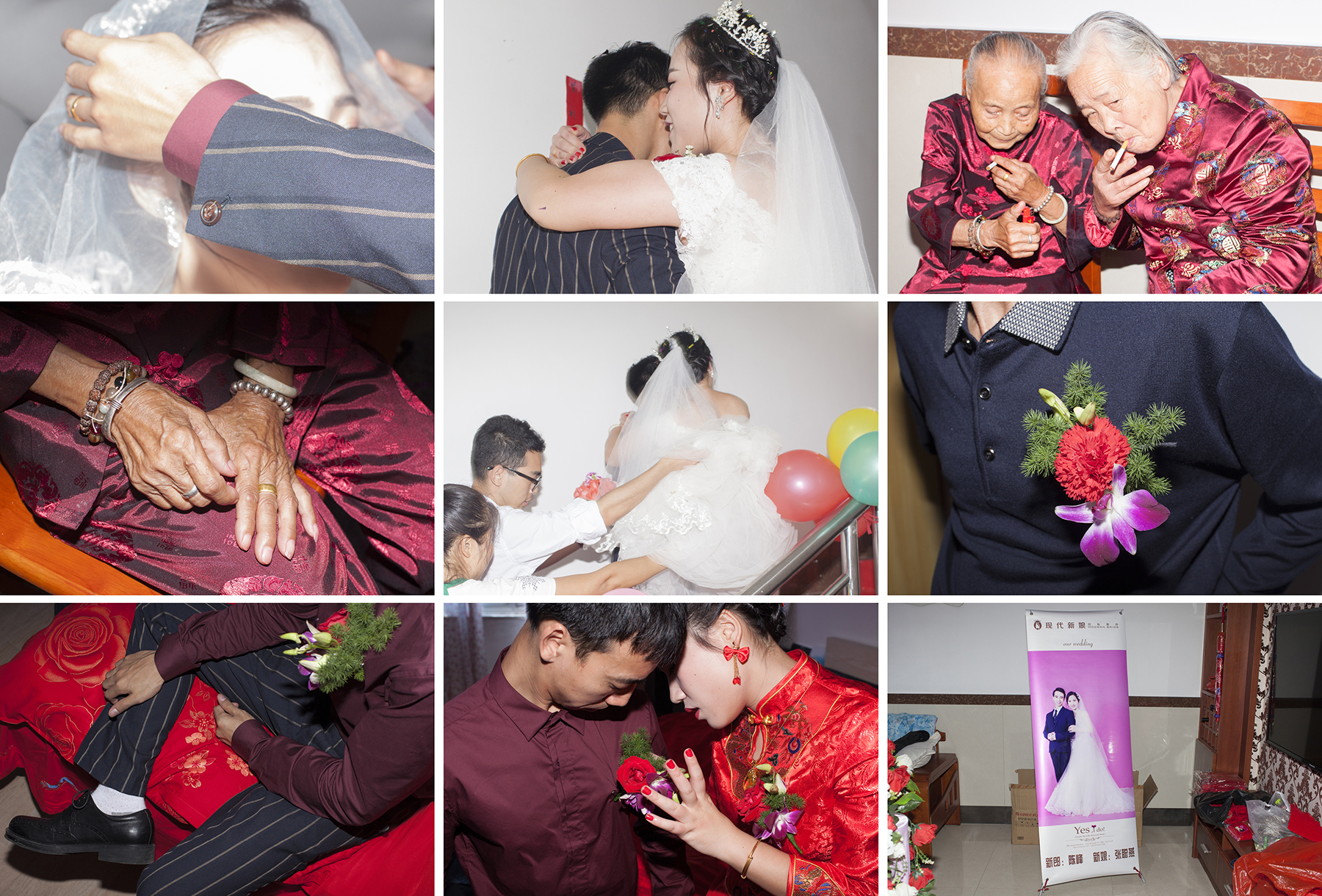
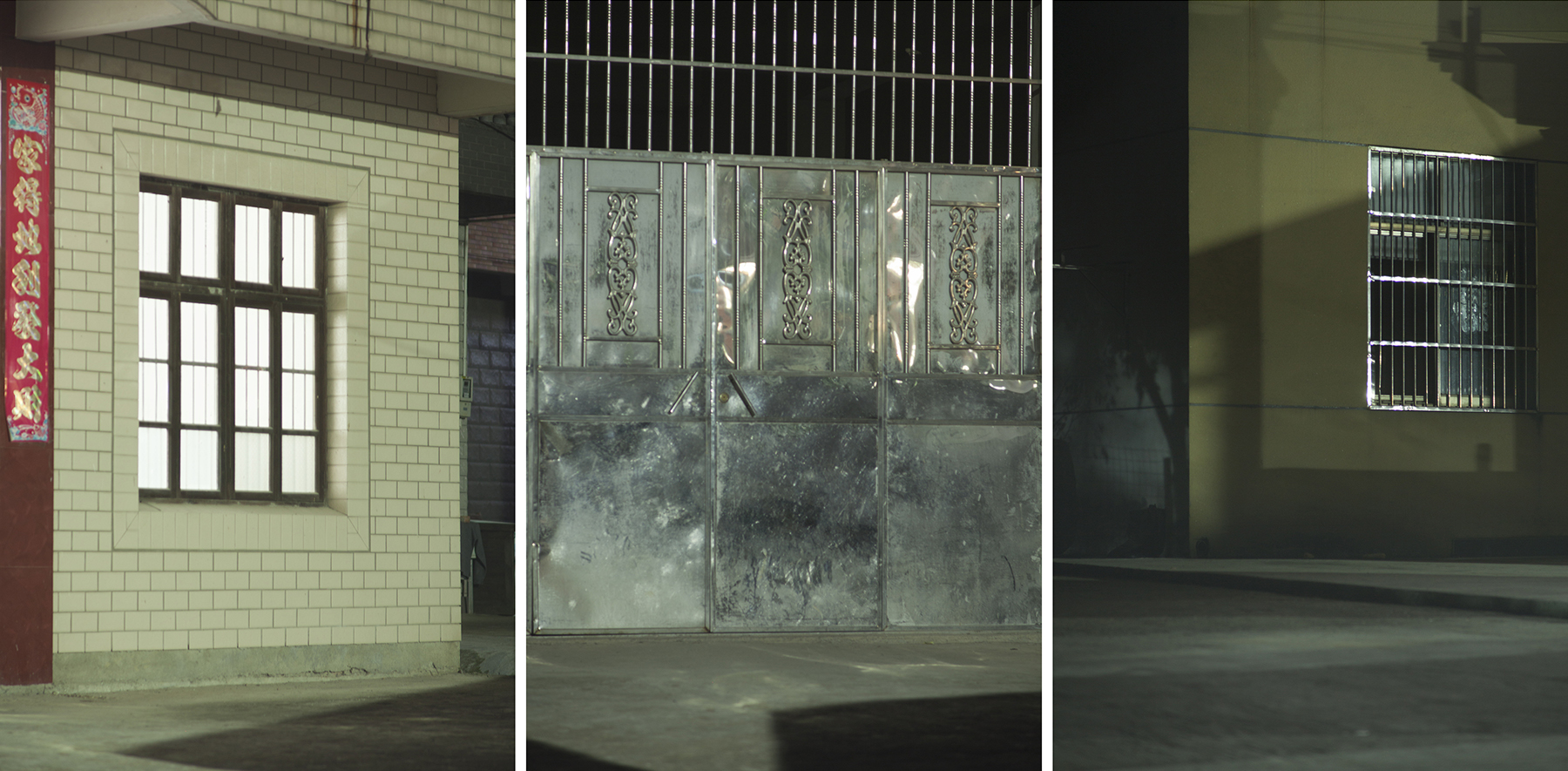
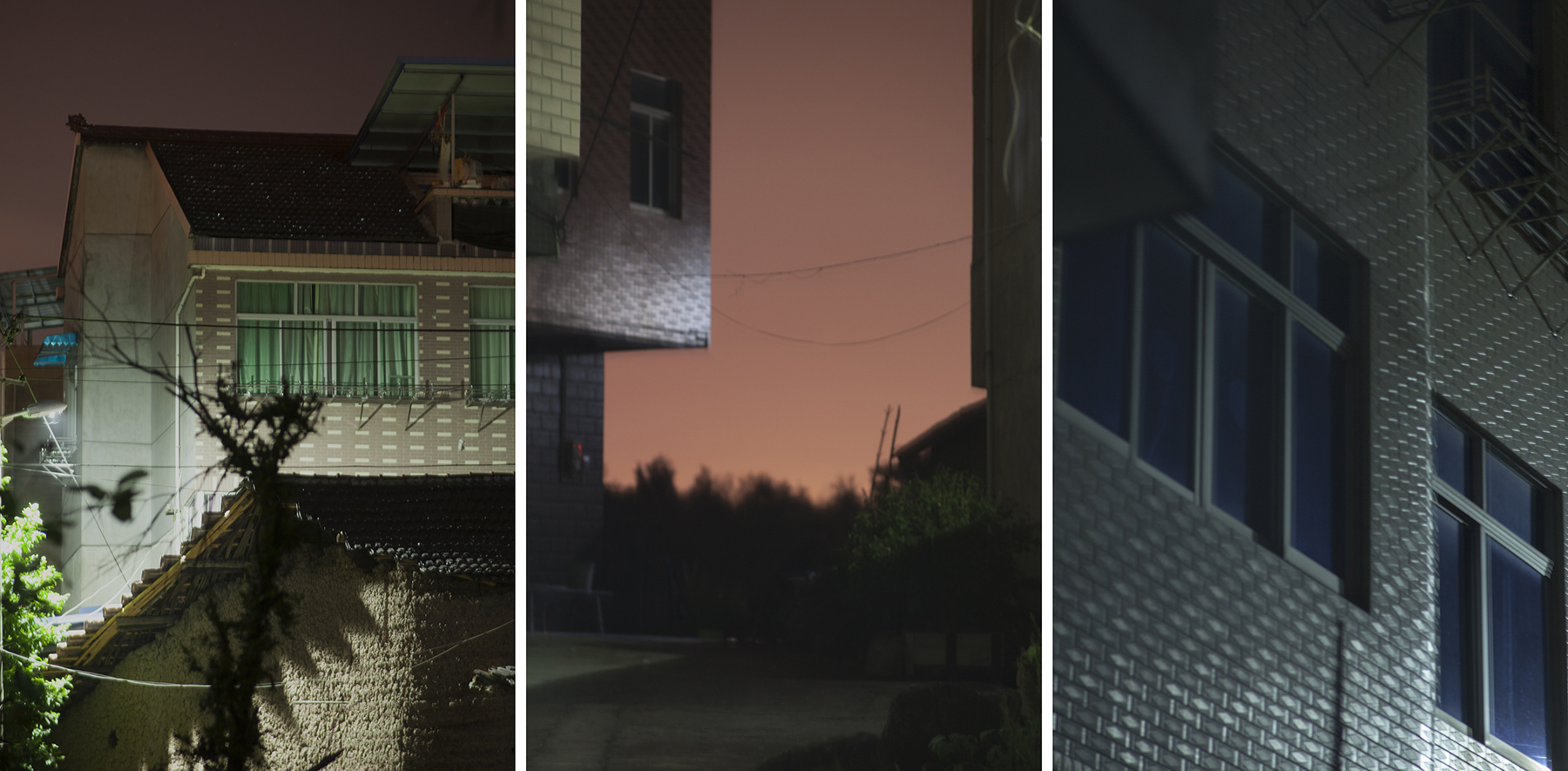
During dinner, the bride and groom went from tent to tent, greeting their guests around food-laden tables. In accordance with tradition, the bride poured drinks for the guests and the groom handed out cigarettes. In exchange, they received red envelopes containing money.
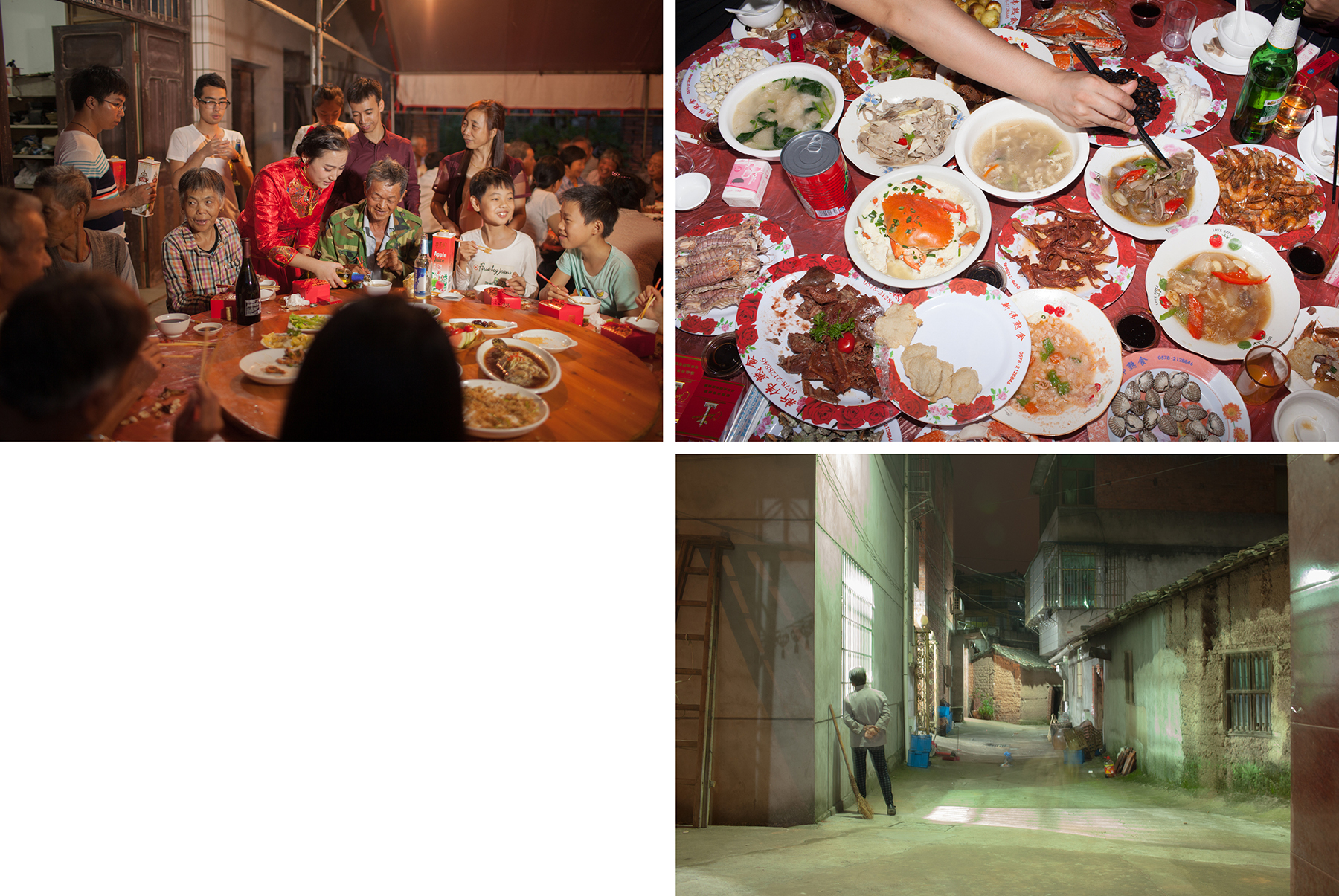
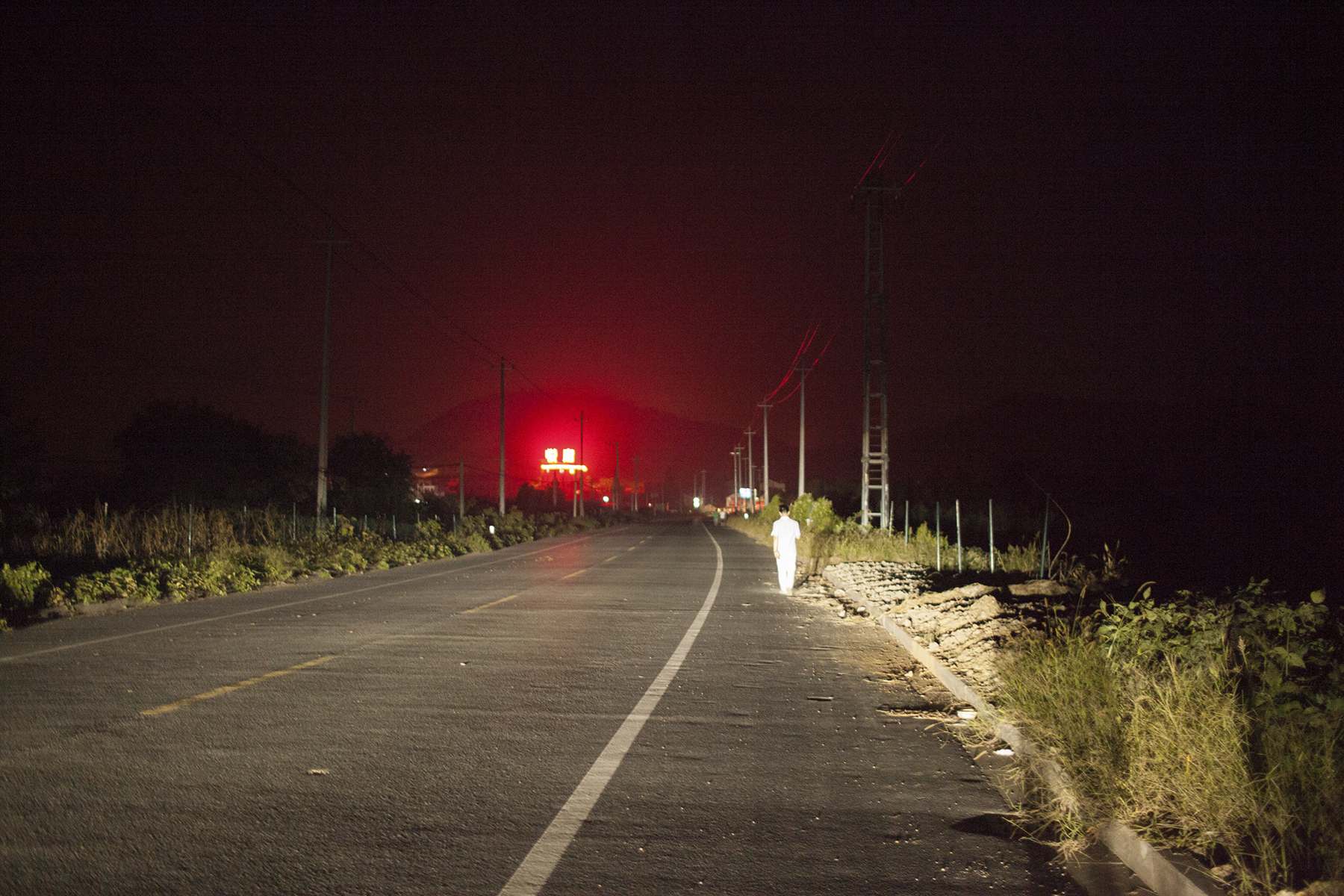

Cōng Yàn said: Oh, I forgot to tell my grandmother I was getting married. With her mother, she lit candles, poured "bai jiu” into little glasses and prepared food and fruit to announce the news to her ancestors. Then they burnt some fake money whose ashes would materialize in the nether world. She said: It is most important to take care of ancestors 20 years after their death, because they stay close to their family. According to belief, Cōng Yàn’s grandmother was still there at home, but her grandfather was already far away. She used to feel his presence after his death, but not anymore.
The day after the wedding, Cōng Yàn took a boat ride on the river nearby.
